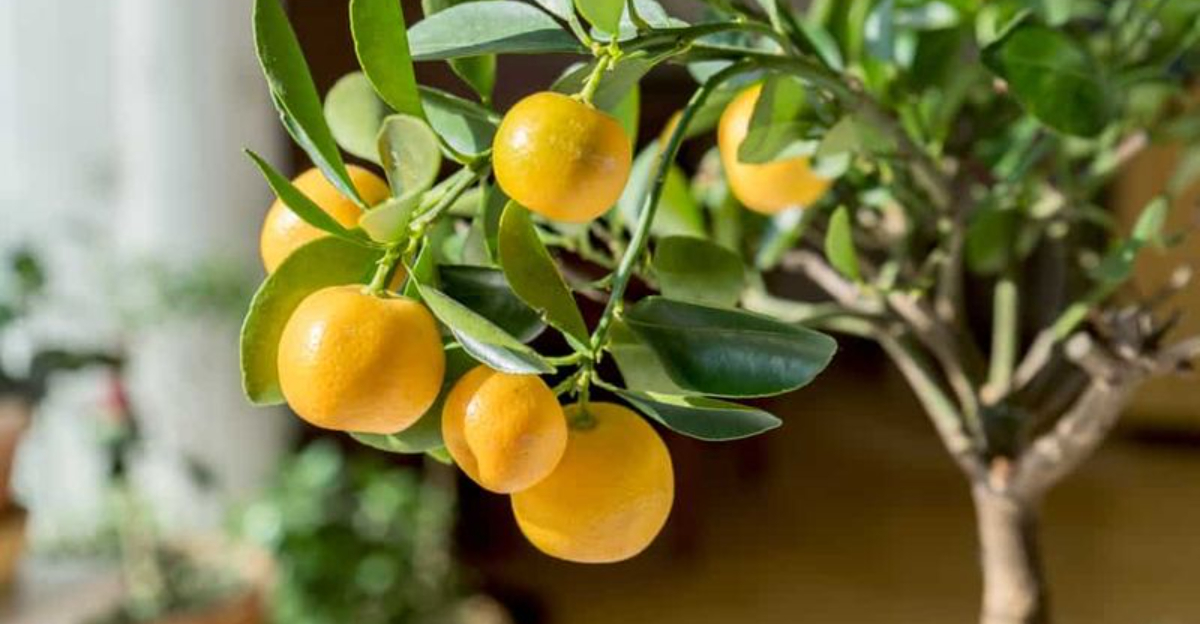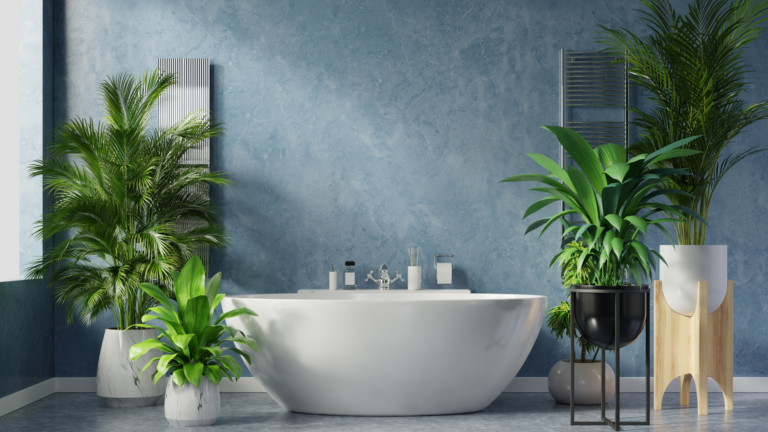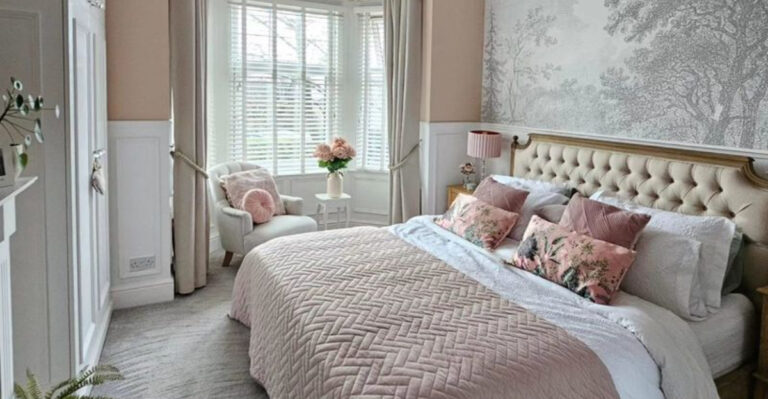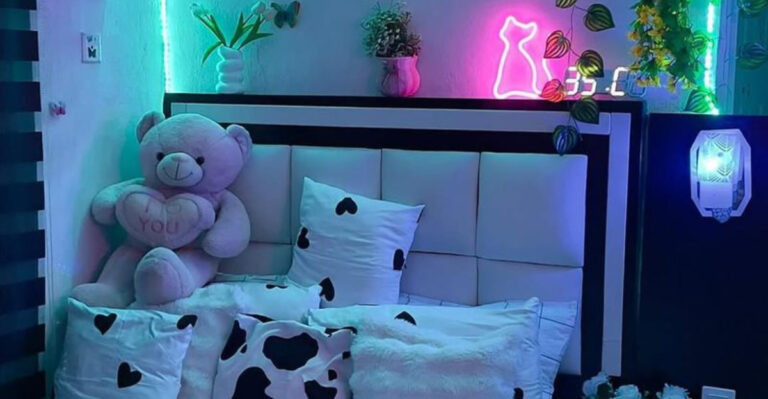10 Houseplants That Disrupt Bedroom Energy According To Feng Shui, And 5 To Use Instead
I’ve always seen my bedroom as my personal escape, a cozy retreat where I can recharge after a long day. But did you know that the plants you keep there could actually mess with the peaceful vibe you’re trying to create?
According to Feng Shui, some plants can throw off the energy in your sleeping space, making it harder to find true rest. I love having greenery around, but I’ve learned that picking the right plants is key to maintaining a calm, balanced atmosphere.
Let’s make sure your bedroom is filled with positive energy that supports deep, restorative sleep.
1. Cactus Plants
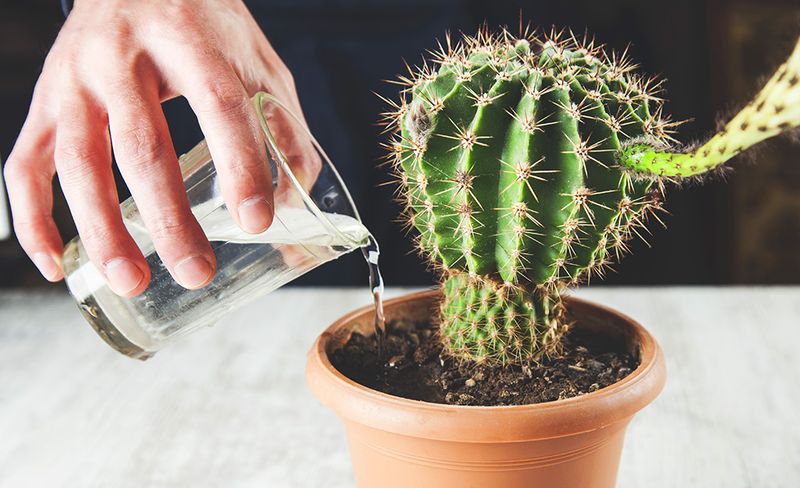
Cacti might look cool on your nightstand, but their sharp spines send out piercing energy that can disrupt your sleep. Feng Shui experts warn that these prickly fellows create a defensive atmosphere when you should be feeling safe and relaxed.
The pointy parts are believed to direct sha chi (harmful energy) toward sleepers. Plus, cacti survive in harsh desert conditions by hoarding water – not exactly the flowing, gentle vibe you want while catching Z’s!
2. Weeping Fig
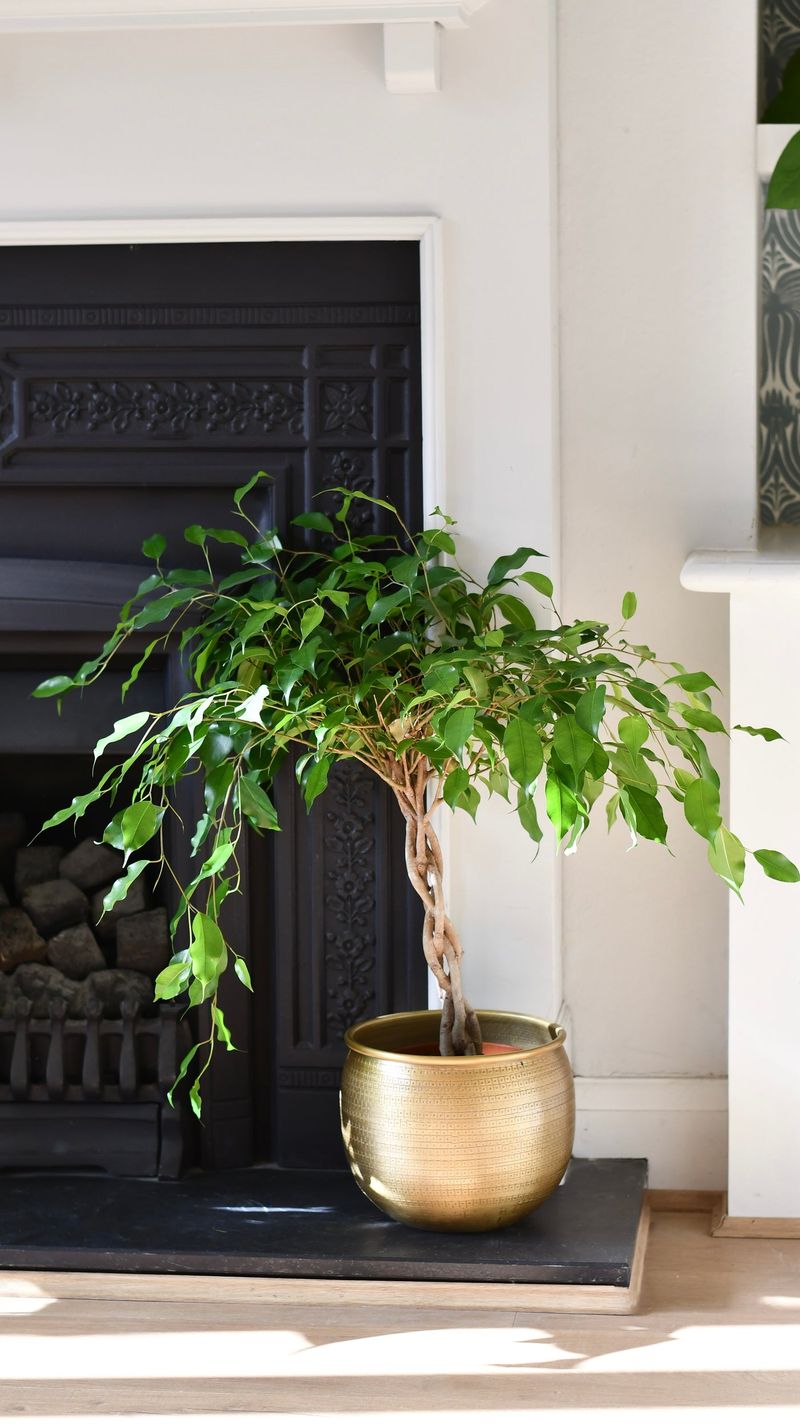
Weeping figs (Ficus benjamina) bring more drama to your bedroom than a reality TV show. These temperamental trees drop leaves when merely glanced at wrong, creating both physical and energetic messes around your sleep space.
According to Feng Shui principles, this constant shedding symbolizes instability and loss. Who needs that energy while trying to snooze? Their large size also dominates smaller bedrooms, creating an overwhelming presence when you’re aiming for balance and calm.
3. Bonsai Trees
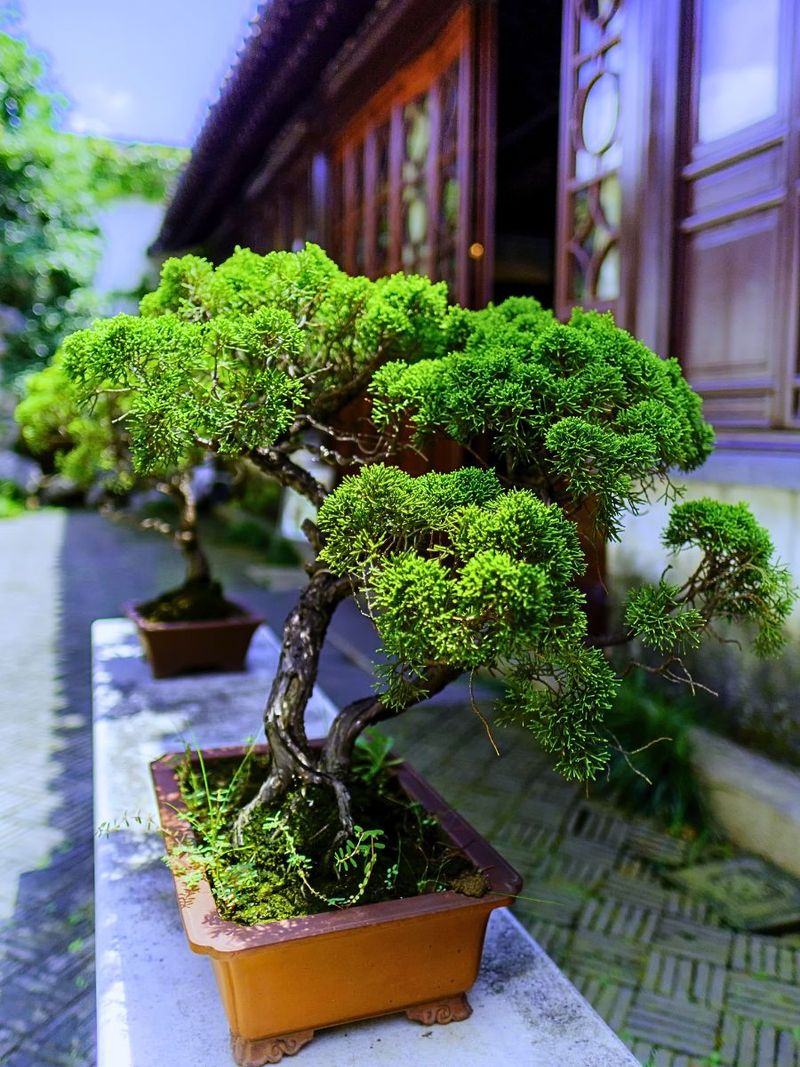
Bonsai trees might be adorable mini versions of their mighty outdoor cousins, but their constrained growth sends problematic vibes into your sleep sanctuary. These plants require constant pruning and restriction to maintain their miniature status.
Feng Shui philosophy suggests this symbolizes limitation and stunted potential – not exactly the expanding, prosperous energy you want surrounding you during sleep! Their demanding care requirements also introduce stress elements into a space meant for unwinding and restoration.
4. Citrus Trees
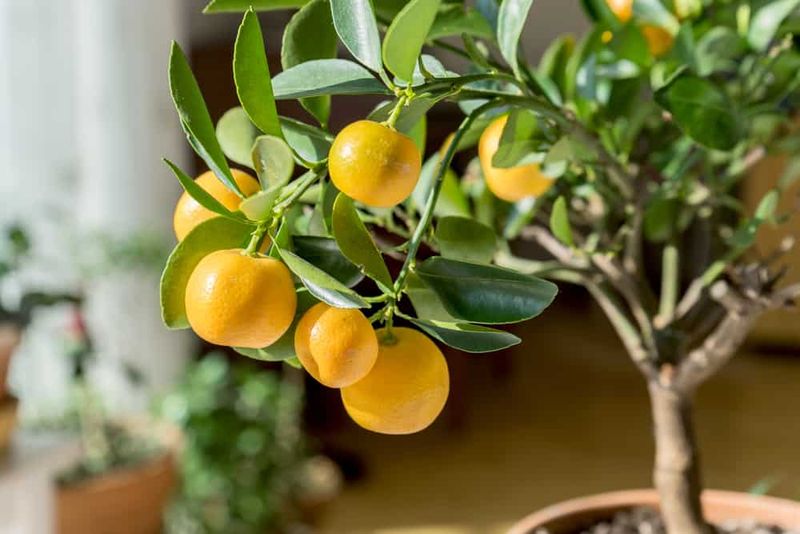
Lemon, lime, and orange trees bring vibrant yang energy that’s too stimulating for restful sleep. Their bright fruits and strong scents keep your senses on high alert when they should be powering down.
The citrusy aroma might smell fantastic during the day, but at night it can overstimulate your brain. Feng Shui practitioners note that the strong yang energy of citrus disrupts the yin-yang balance needed for proper rest cycles.
5. Climbing Vines
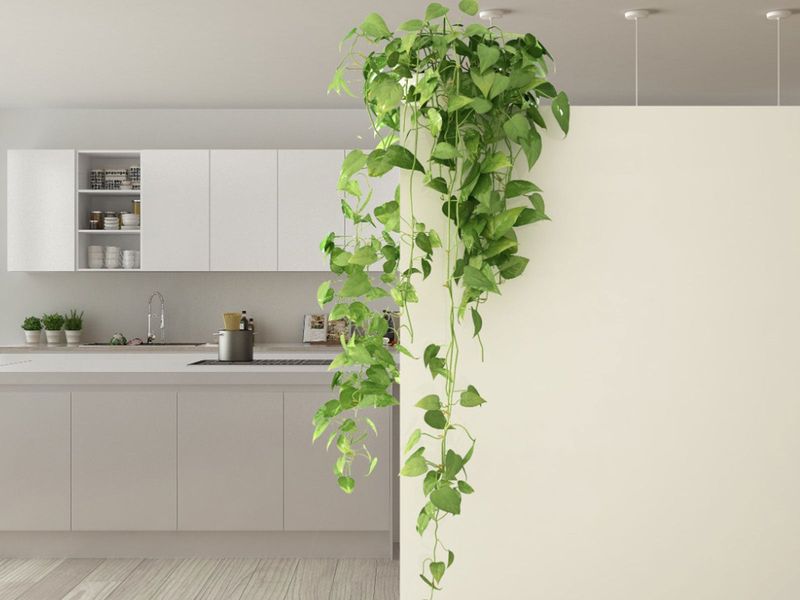
Ivy, pothos, and other climbing vines create visual chaos that can translate to mental chaos. When these plants send tendrils everywhere, they introduce disorganized energy that contradicts the calm, ordered atmosphere ideal for sleep.
Feng Shui wisdom suggests that vines can symbolically entangle your thoughts and dreams. Their rapid, sometimes unpredictable growth patterns represent uncontrolled energy that might manifest as restless nights or confused thinking upon waking.
6. Large Leafy Plants
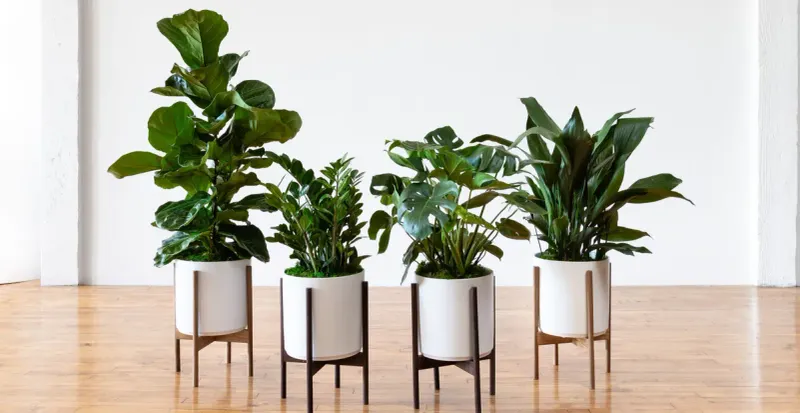
Monster plants like Monstera deliciosa or large palm varieties might look Instagram-worthy, but they physically and energetically dominate bedroom spaces. Their giant leaves can create feelings of being crowded or watched while you sleep.
These leafy giants consume oxygen at night, potentially affecting air quality when you need it most. The oversized leaves can also create moving shadows that disrupt sleep patterns, especially with night lights or street lamps casting illumination through windows.
7. Fruit-Bearing Plants
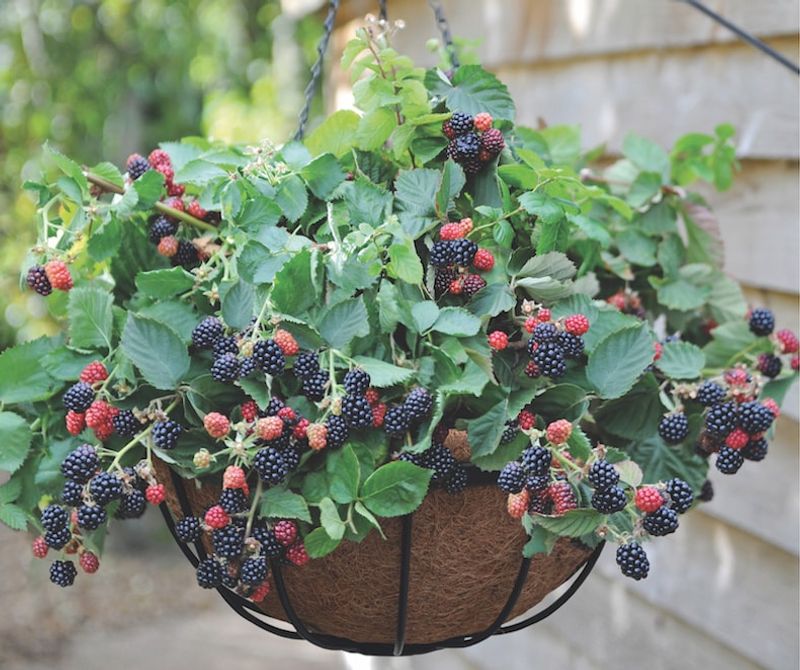
Strawberry plants, cherry tomatoes, or other fruit-bearing varieties bring strong fertility energy – great for couples trying to conceive, not so great for everyone else! These plants constantly produce and reproduce, creating an energetic buzz that can interfere with peaceful slumber.
The ripening fruits attract insects, adding another unwanted element to your sleep space. Feng Shui consultants often recommend keeping these productive plants in living areas or kitchens where their abundant energy aligns better with daytime activities.
8. Spiky Sword Plants
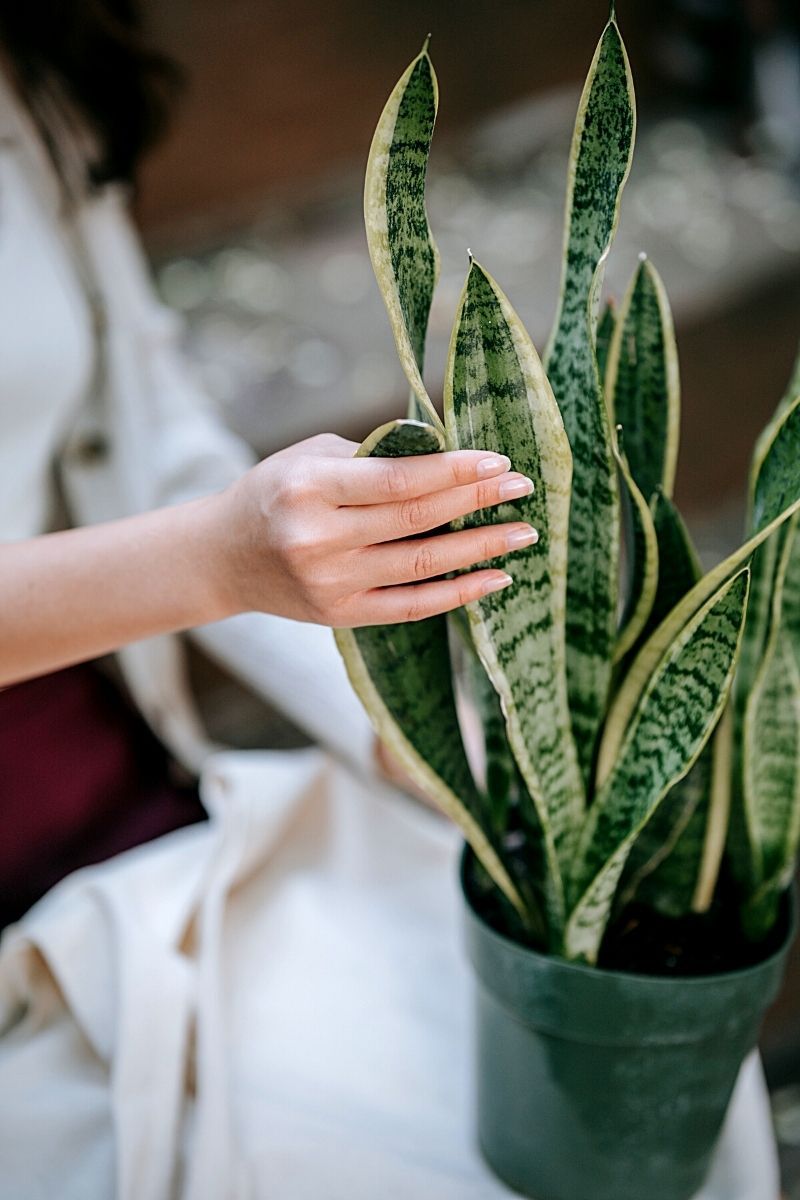
Snake plants, mother-in-law’s tongue, and other sword-shaped foliage create sharp energy lines that symbolically cut through the peaceful atmosphere. Their upward-pointing leaves direct energy in ways that can feel confrontational rather than restful.
While these plants are excellent air purifiers, their strong yang energy works against the yin balance needed for sleep. Some Feng Shui practitioners believe these plants can create an argumentative atmosphere – not ideal for couples sharing a bedroom!
9. Aromatic Herbs
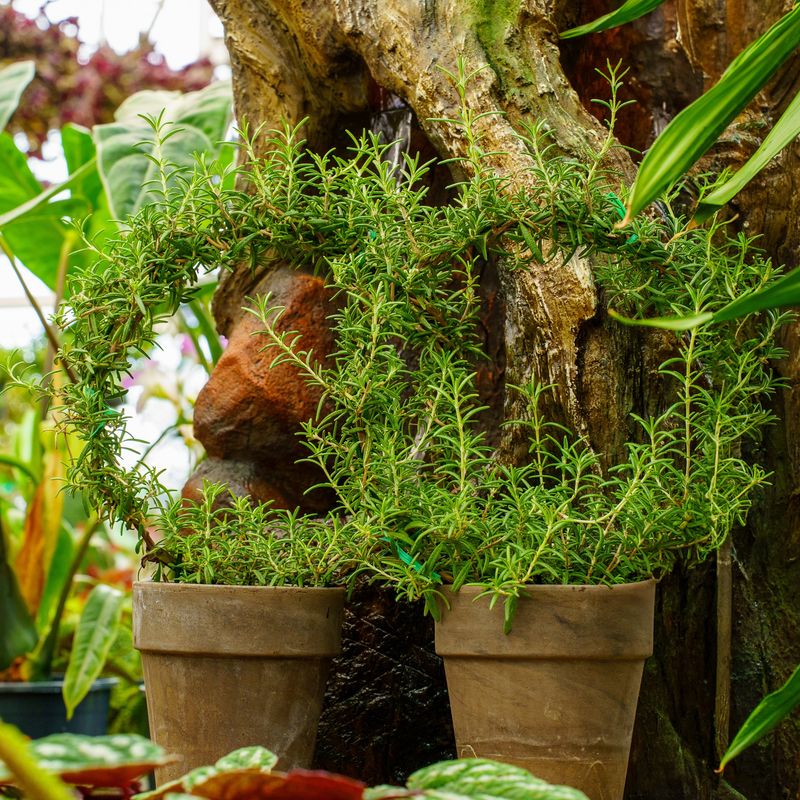
Rosemary, mint, and other aromatic herbs smell wonderful but can overstimulate your senses when you’re trying to wind down. Their strong scents trigger brain activity when you should be transitioning to sleep mode.
Many aromatic herbs have medicinal properties that energize rather than calm. Mint, for example, is known to increase alertness – the opposite of what you want at bedtime!
Keep these sensory plants in kitchens or living areas where their stimulating properties can be appreciated during waking hours.
10. Dead Or Dying Plants
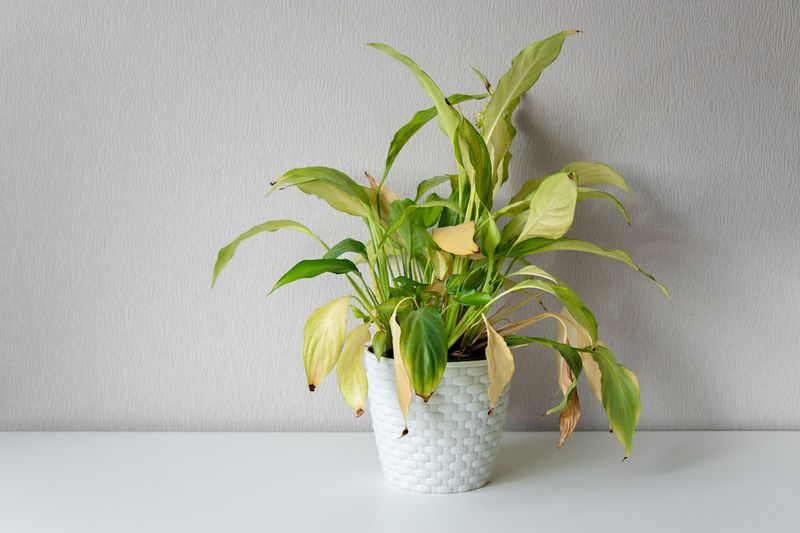
Nothing sucks good vibes from a room faster than a struggling, yellowing plant. Half-dead greenery represents decay and neglect – symbolism that can seep into your subconscious during vulnerable sleep states.
Brown leaves and wilting stems release negative chi according to Feng Shui principles. These failing plants literally consume rather than contribute energy to your space.
The sight of them can also trigger subtle stress responses as your brain registers something needing attention in your environment.
1. Peaceful Lily
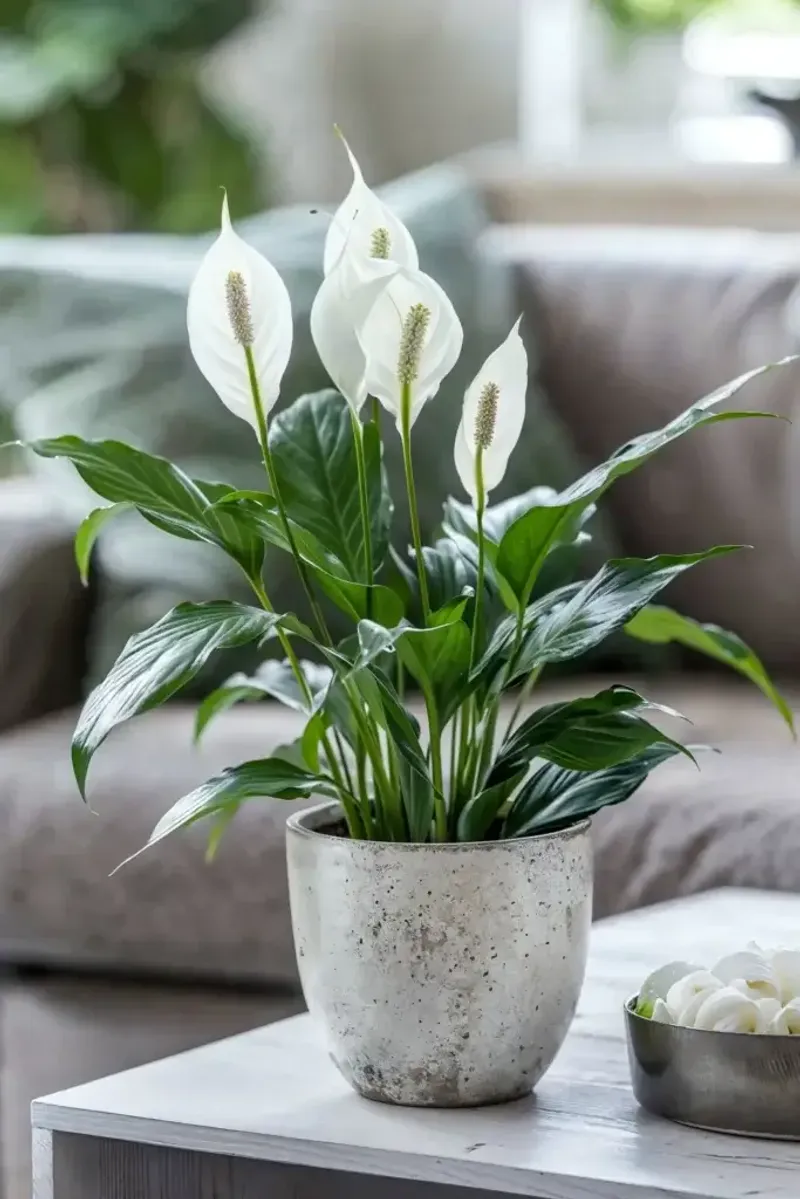
Peace lilies offer the perfect balance of beauty and function for bedroom spaces. Their elegant white blooms symbolize purity and tranquility, creating a serene atmosphere conducive to restful sleep.
Unlike some plants that release carbon dioxide at night, peace lilies continue purifying air around the clock. Their rounded leaves create soft, flowing energy lines that Feng Shui practitioners recommend for sleep spaces.
The subtle, non-overwhelming scent of their occasional blooms adds a gentle layer of aromatherapy without disrupting sleep patterns.
2. Lavender
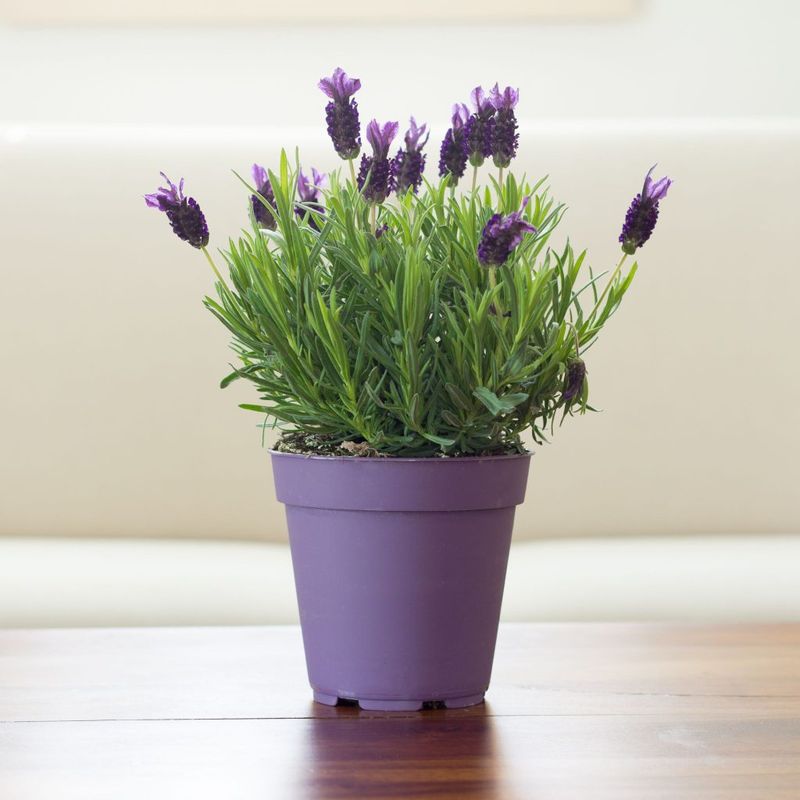
Lavender plants bring scientifically-proven sleep benefits to your bedroom. Their gentle purple blooms release subtle scents that activate relaxation responses in the brain without overwhelming the senses.
Feng Shui experts appreciate lavender’s balanced energy – neither too yang (active) nor excessively yin (passive). The soft, rounded growth pattern creates harmonious energy flow rather than sharp or chaotic lines.
Just a small potted lavender plant can transform your sleep space into a natural sleep sanctuary that both looks beautiful and functions energetically.
3. Jasmine
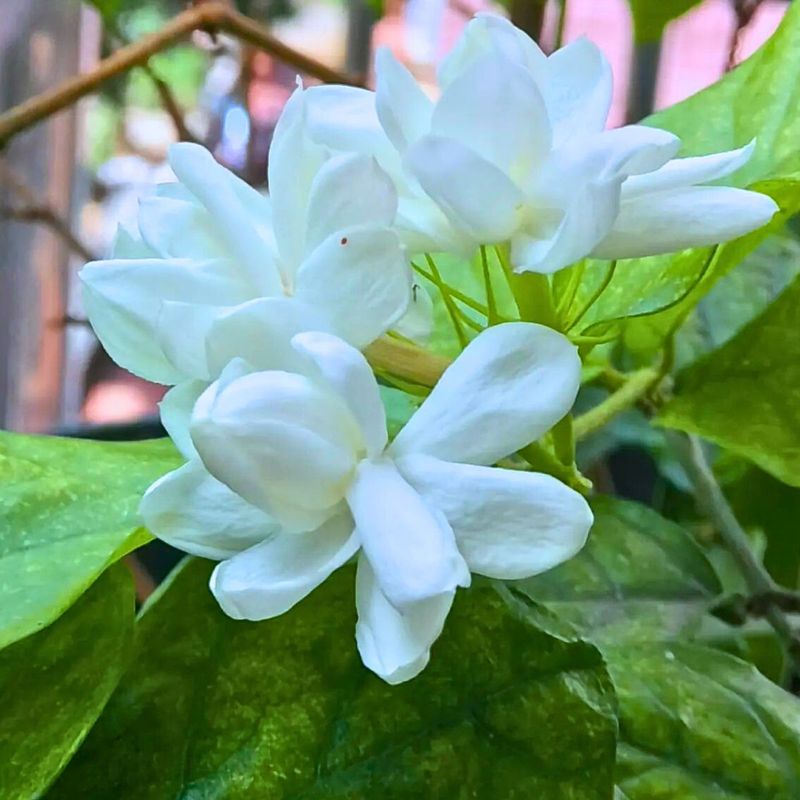
Jasmine plants earn their bedroom-worthy status through their sleep-enhancing properties. Studies show that jasmine scent can improve sleep quality and reduce anxiety – perfectly aligned with Feng Shui principles for bedroom harmony.
The delicate white blooms symbolize purity and new beginnings, creating positive energy for dream states. Jasmine’s gentle climbing nature can be trained in non-chaotic ways, allowing you to direct its growth in harmony with your space rather than letting it create visual disorder.
4. Bamboo Palm
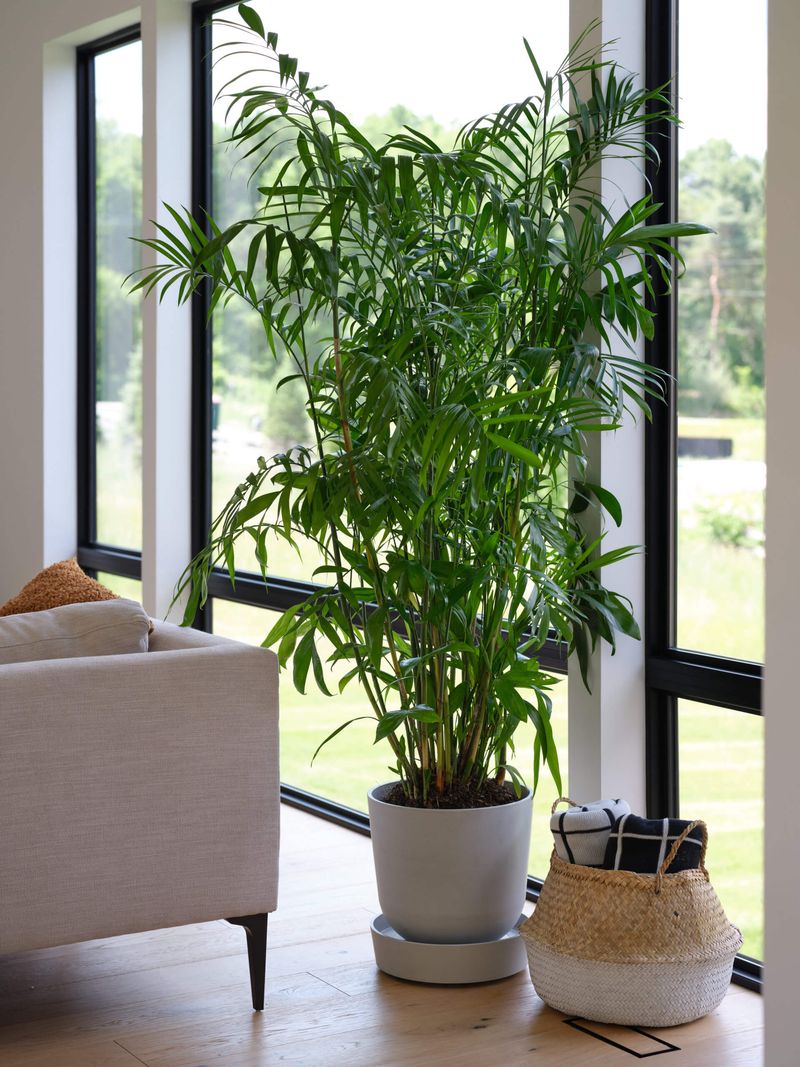
Bamboo palms bring forest energy into bedrooms without dominating the space. Their feathery fronds create gentle movement that Feng Shui practitioners associate with balanced chi flow – neither stagnant nor rushed.
NASA research confirms bamboo palms excel at removing toxins from indoor air, creating a healthier sleep environment. Their moderate size fits bedroom proportions without overwhelming the space energetically or physically.
The soft rustling sound they make with gentle air movement adds a subtle white noise element that many find helps mask disruptive sounds.
5. Rubber Plant
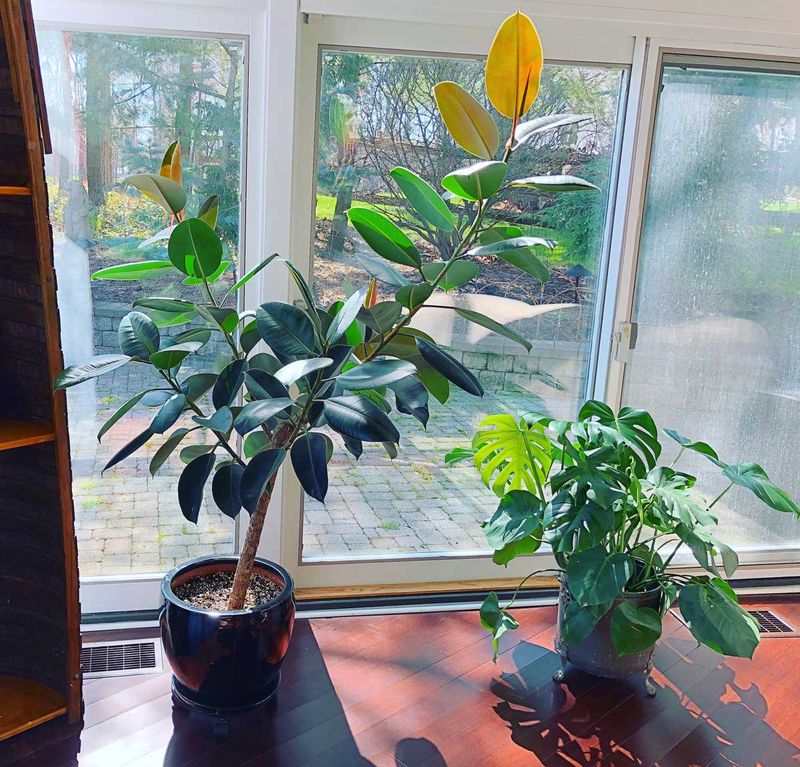
Rubber plants offer robust energy without the sharp or chaotic elements that make some plants bedroom no-nos. Their thick, rounded leaves create a sense of abundance and security that supports restful sleep.
Feng Shui practitioners appreciate how rubber plants grow upward with stability, symbolizing steady progress and protection. Their manageable growth rate means they won’t suddenly overtake your space.
The glossy leaves reflect light gently rather than absorbing it, maintaining the brightness balance needed for good bedroom energy.

